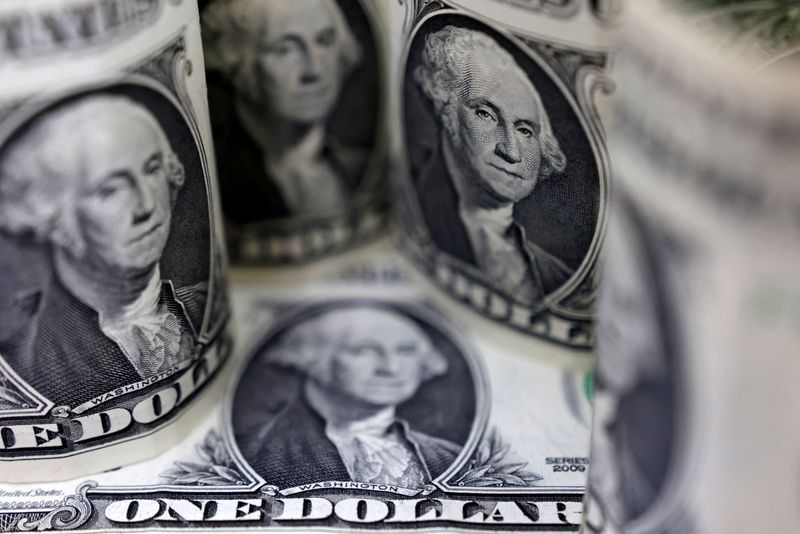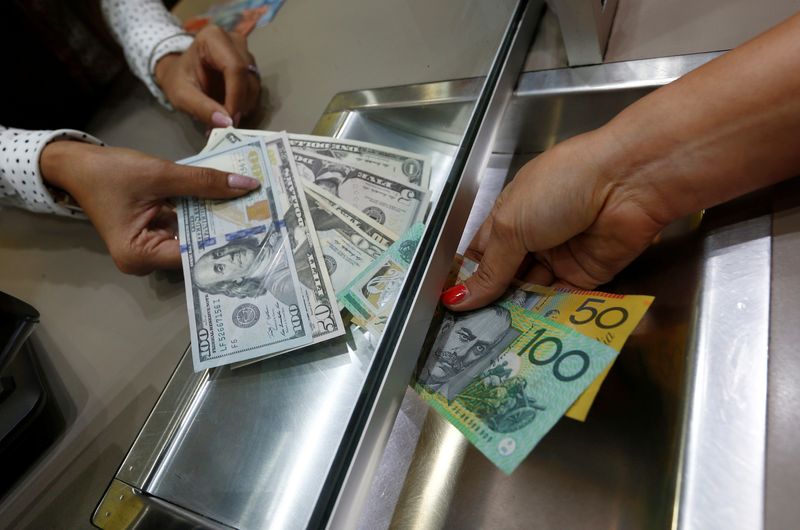By Harry Robertson and Rae Wee
LONDON/SINGAPORE (Reuters) - The dollar ticked up on Wednesday in subdued trading as investors looked towards the Federal Reserve's policy decision next week, while the euro traded just below a nine-month high.
The euro was 0.26% lower against the dollar at $1.086, down from the $1.093 level reached on Monday, which was the highest since April.
Meanwhile, the dollar was down 0.32% against the yen, at 129.74 yen per dollar, having hit an 8-month low of 127.22 on Jan. 16.
Alvin Tan, head of Asia FX strategy at RBC (TSX:RY) Capital Markets, said markets were quiet due to the Lunar New Year holiday and the looming Fed meeting.
"Much of Asia is still on holiday," Tan said. "We have the Fed coming up very soon and I think there's a bit of caution ahead of that."
A drop in global energy prices and a resulting slowdown in inflation in advanced economies has spurred speculation the Fed and other central banks might soon stop raising interest rates.
Those expectations have caused the dollar index, which surged on the back of Fed rate hikes last year, to fall more than 11% from September's 20-year high of 114.78.
The index was up 0.12% to 102.04 on Wednesday. Sterling fell 0.25% to $1.231.
Traders broadly expect the Fed to increase rates by 25 basis points (bps) next Wednesday, a step down from a 50 bps increase in December. Before that, investors will scrutinise U.S. fourth-quarter economic growth figures, due on Thursday.
Data on Tuesday showed euro zone business activity made a surprise return to modest growth in January. Expectations of further rate increases by the European Central Bank have also supported the euro.
German business morale improved in January, according to Ifo Institute survey data released Wednesday, as inflation eased and the outlook brightened.
In contrast, U.S. business activity contracted for the seventh straight month in January, data showed on Tuesday, though the downturn moderated across manufacturing and services for the first time since September.
"(The data) just confirms that, for one, the resilience in Europe ... and the challenges they've had in terms of energy, have not been as detrimental as some had expected," said Rodrigo Catril, a currency strategist at National Australia Bank.
"At the same time, the slowdown in the U.S., in terms of activity, looks to be broadening."
Elsewhere, the Australian dollar surged to a more than five-month high on Wednesday after inflation data came in hotter than expected, bolstering the case for further rate increases from the Reserve Bank of Australia.
The Aussie was last up 0.63% to $0.709.
Meanwhile, the kiwi was down 0.54% to $0.647, after New Zealand's annual inflation of 7.2% in the fourth quarter came in below its central bank's 7.5% forecast.

The dollar was little changed against its Canadian counterpart ahead of the Bank of Canada's latest rates decision at 1500 GMT Wednesday, buying C$1.337.
(This story has been corrected to say that the euro's Monday milestone was the highest since April, not early May, in paragraph 2)
